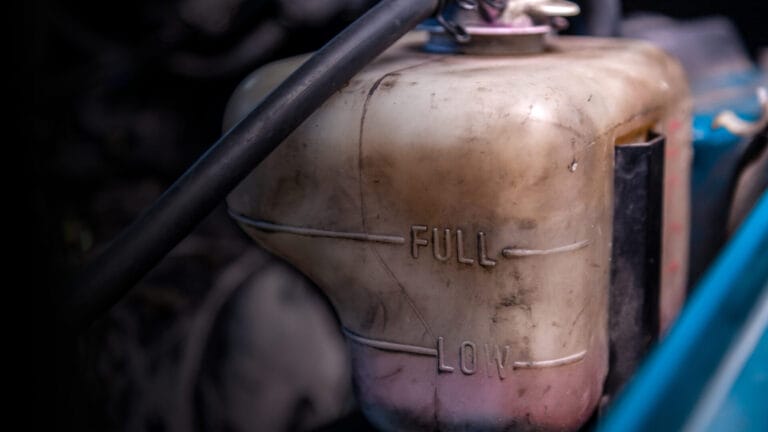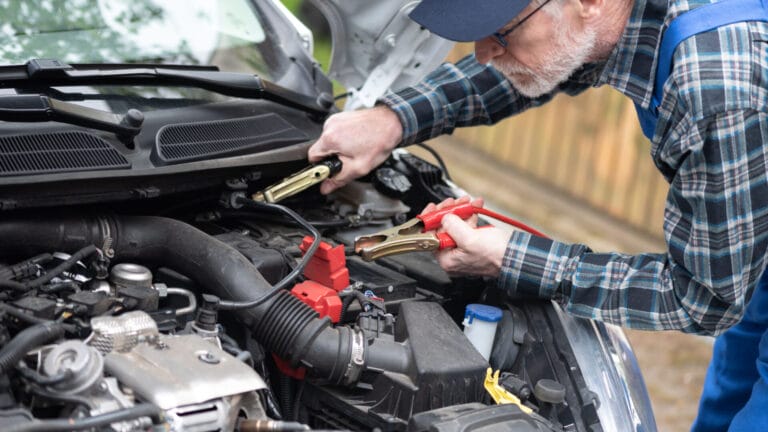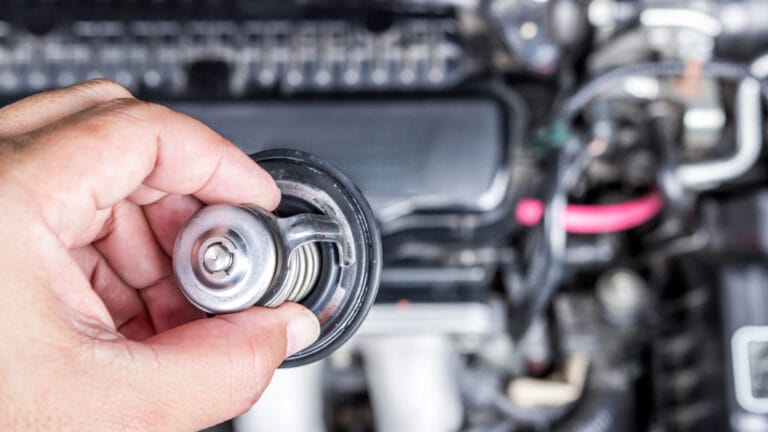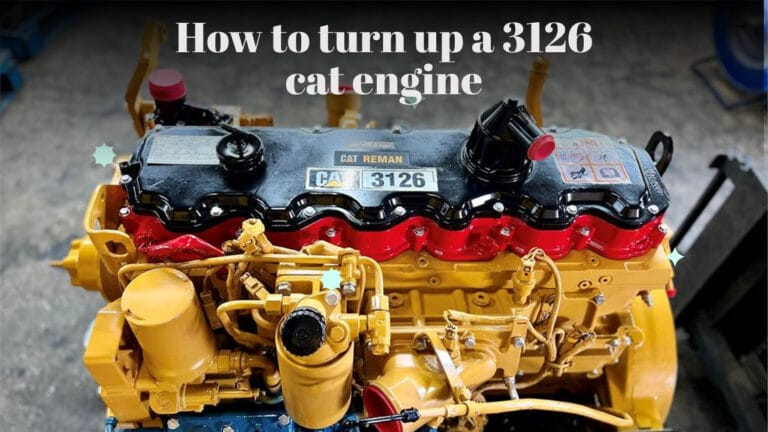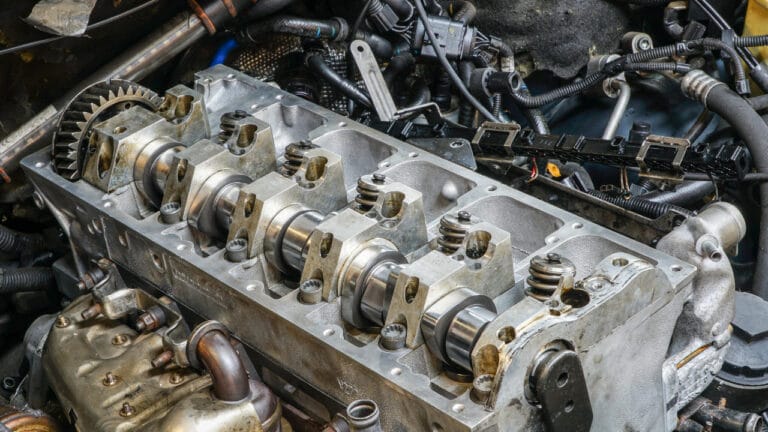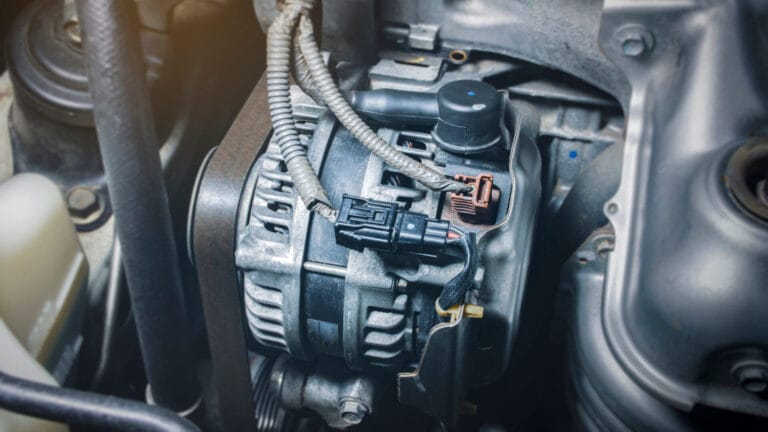Can a Bad Alternator Cause Sputtering? Find Out Here
If you’ve ever experienced your vehicle sputtering or misfiring, you know how frustrating it can be. There are several potential causes for sputtering, and one of them is a bad alternator.
Most of us know an alternator has an important role in the charging system of a vehicle, but not everyone understands the full extent of its functionality.
In this blog, we will explore the role of an alternator, identify the symptoms of a bad alternator, and understand how a bad alternator can lead to sputtering. We will also discuss the impact of a bad alternator on vehicle performance and address the steps to fix a bad alternator causing sputtering.
Role Of Alternator
Before we unravel this mystery, let’s take a quick pit stop to understand the alternator.
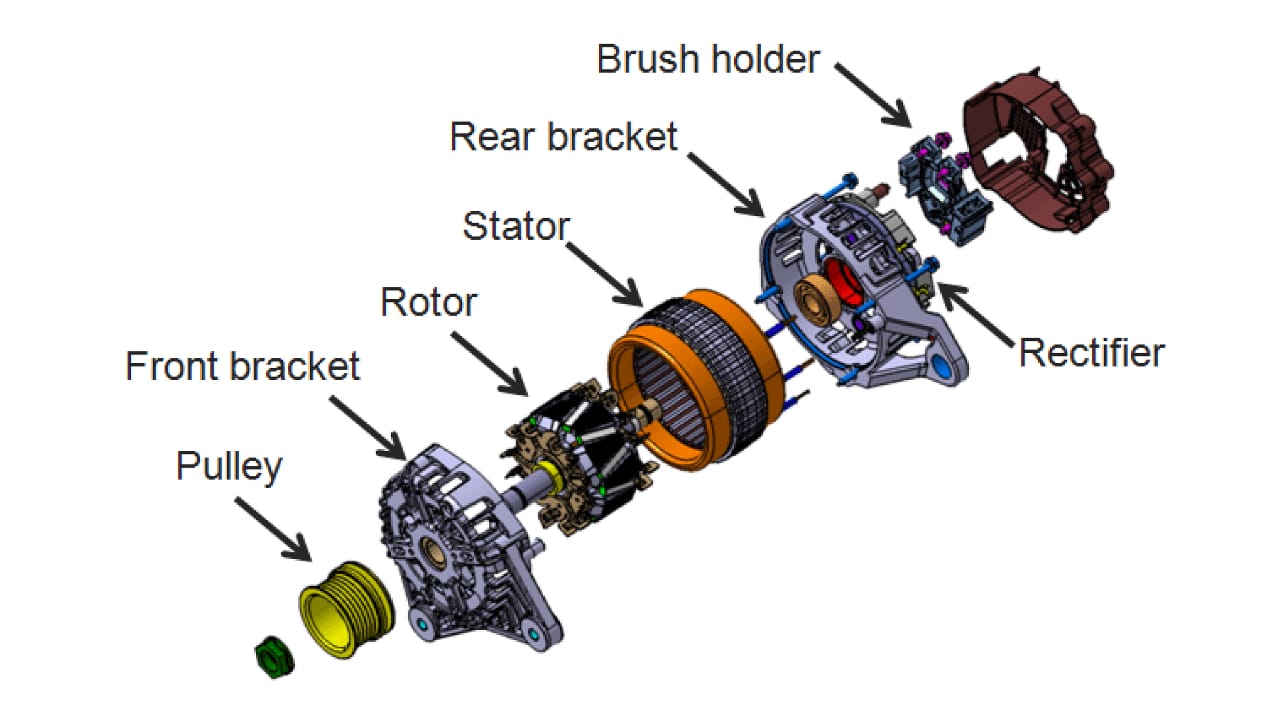
Often overshadowed by more glamorous components, the alternator is the powerhouse that keeps your vehicle’s electrical system running smoothly. Unlike the battery, which supplies power to start the engine, the alternator takes over once the engine is running. It transforms the rotational energy generated by the engine into alternating current (AC), subsequently converting it to direct current (DC). This newly produced DC electricity is then distributed to power the various electrical components and systems within the vehicle.
So when it goes bad, it can set off a chain reaction of issues such as dimming headlights, electrical issues, engine failure, stalling, and sputtering as well.
Can a bad alternator cause sputtering?
Yes, a bad alternator can cause sputtering due to power supply interruptions. When the alternator is faulty or malfunctioning, it fails to supply the necessary voltage to the engine and electrical components, leading to sputtering. It can manifest as rough engine idle, misfires, and a lack of power during acceleration.
What is Sputtering?
Engine sputtering is the irregular and jerky movement of the engine, usually accompanied by misfires and a lack of power. This sputtering can be particularly noticeable when the vehicle is accelerating or when the electrical load, such as the headlights or air conditioning, is high.
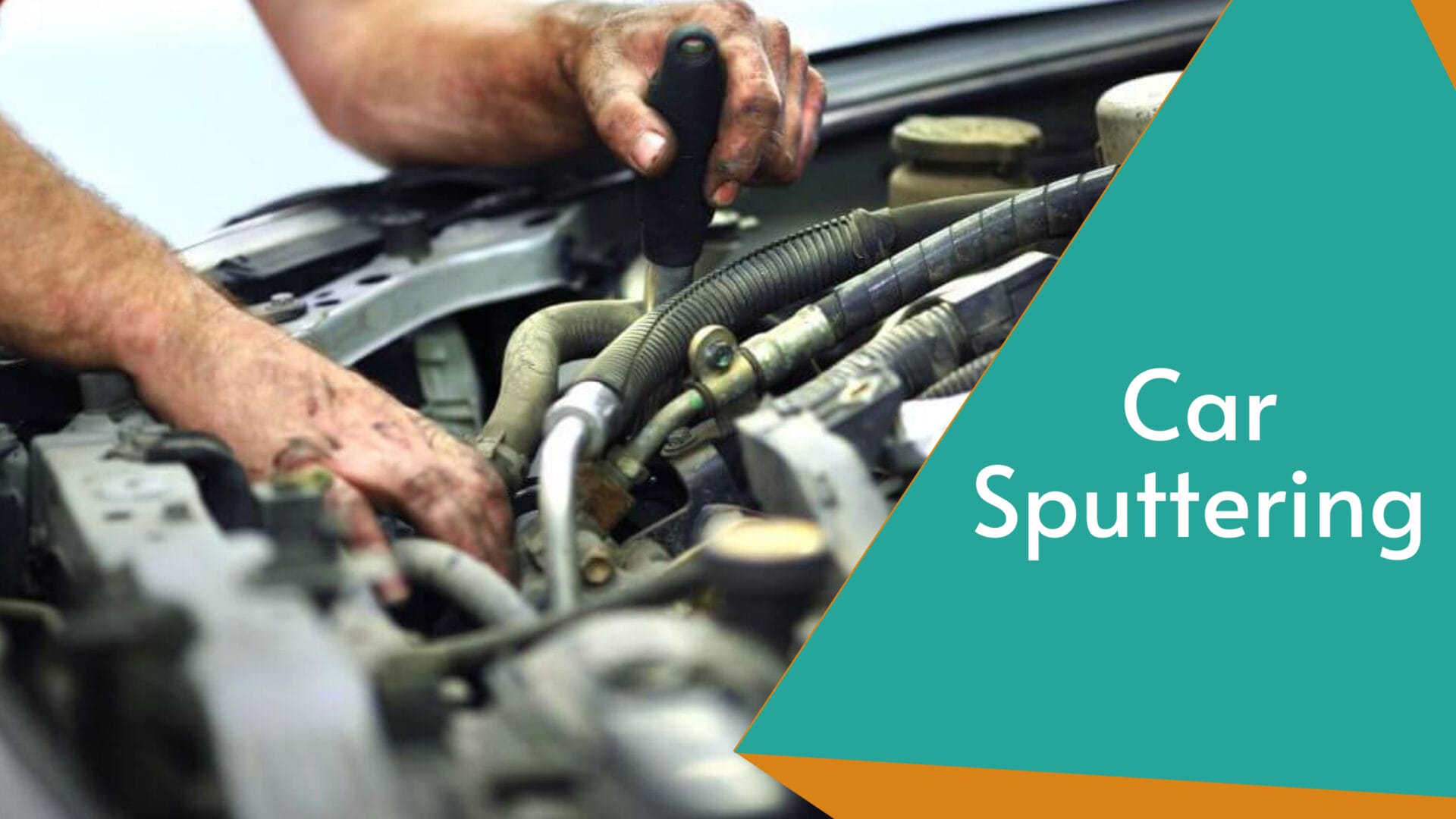
This happens when there is insufficient electrical power to the spark plugs, which are responsible for igniting the fuel-air mixture in the engine cylinders. Without a consistent and sufficient spark, the engine fails to air filter and may misfire or struggle to maintain a smooth running condition.
How a Bad Alternator Causes Sputtering
While sputtering can have various causes, and a bad alternator is one of them. It is the culprit behind the disruption of the electrical power supply, which directly affects the engine’s performance.
When alternator malfunctions, it fails to supply enough power to the engine and other electronic components. As the battery voltage output becomes inconsistent, the engine’s idle speed and rpm may become unstable, resulting in sputtering. In some cases, the sputtering may even be accompanied by rough idling and spark plug-related issues.
The Impact of a Bad Alternator on Vehicle Performance
A bad alternator can have several negative impacts on your vehicle’s overall performance, beyond just sputtering.
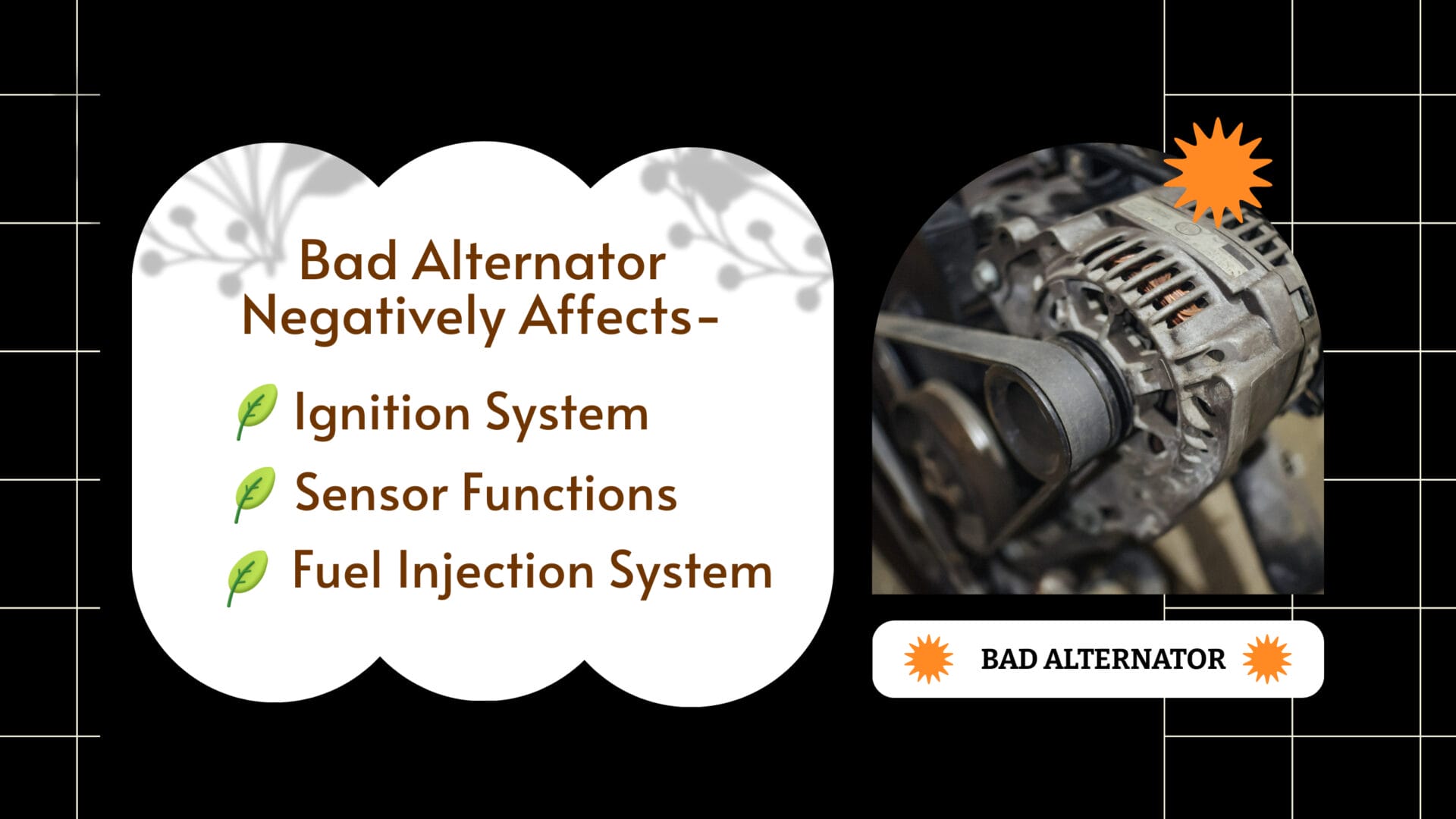
It can affect various systems, including the ignition system, fuel system, and o2 sensor functions, which in turn can impact the engine’s performance, fuel efficiency, and overall drivability of the vehicle. Understanding these effects can help you address the issue promptly and avoid further damage to your vehicle’s electrical components.
Impact on Ignition System
A failing alternator directly impacts the ignition system by depriving crucial components, such as the ignition coil and spark plugs, of adequate electrical power. This shortage leads to weakened sparks and erratic combustion, resulting in engine misfires and reduced performance.
Effect on Fuel Injection System
A malfunctioning cars alternator adversely affects the fuel injection system by providing inadequate electrical power to components like the fuel injectors. This insufficiency hampers the precise delivery of fuel from the fuel tank into the combustion chamber, leading to inefficient combustion and decreased engine performance.
Influence on Sensor Functions
A deficient cars alternator directly impacts sensor functions by supplying insufficient electrical power to critical sensors like oxygen sensor in the vehicle. This inadequacy can lead to erratic readings and malfunctions in systems such as the engine control module (ECM), compromising overall performance and potentially triggering a warning engine light on the dashboard.
How To Identify A Bad Alternator
Sputtering indicates a bad alternator, and it doesn’t end here. There are several common signs of a bad alternator that you should be aware of: dimming lights, unusual noises, odors, difficulty in starting the vehicle, etc. Let’s understand in detail.
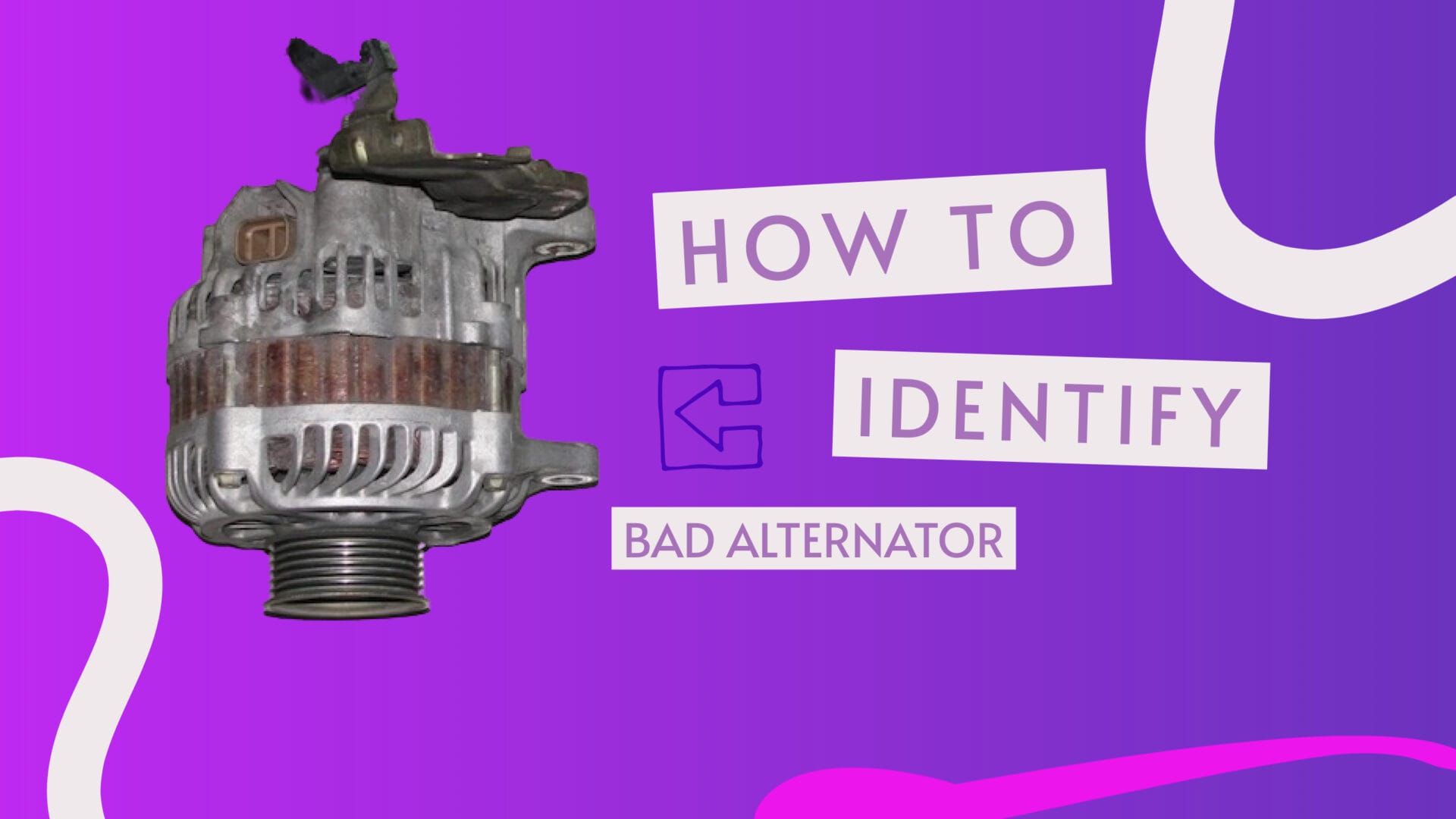
- Flickering or flashing both the headlights and dashboard lights,
- Electrical malfunctions, such as power windows or accessories not working properly,
- Slow or weak power supply from the alternator to electrical components.
- Grinding and buzzing sounds coming from the alternator area.
- Clicking or whining noises when starting the vehicle.
- Pungent burning odor, indicating a faulty alternator or wiring issue.
- Not enough voltage for the engine to start smoothly, the crankshaft turns slowly, or the engine struggles to start.
An alternator that is not working properly can lead to other electrical problems and even a total engine failure, so it is essential to take immediate step to stop additional damage to the engine and your car’s electrical system.
How To Fix Bad Alternator Causing Sputtering
Before treating the alternator, you must determine whether the alternator is indeed the culprit behind the sputtering or not. If it is deemed faulty, replace it with a new or remanufactured one, ensuring compatibility with your vehicle’s make and model. Now you may ask, “why directly replacing it and not trying to repair it?”
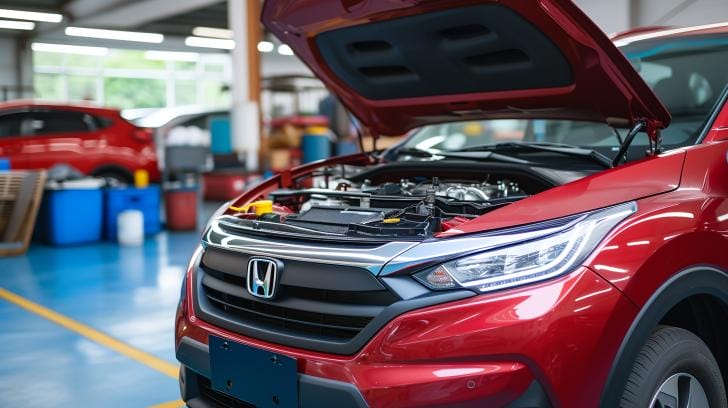
Well, repairing an alternator will cost you almost the same as replacing it. So it’s better to replace it rather than take the hassle and risk of repairing it.
Usually, an alternator can run well for 150,000 miles; if your one hasn’t yet run that much and the problem is only the voltage regulator, you can take the chance of repairing it. However, not only for this but for any type of repair work, if you need to take apart the car, avoid repairing it and choose to replace the part.
DIY or Proffessional Help?
Depending on your skills and the severity of the problem, you can choose to either seek professional help or attempt DIY repairs. If you have the necessary technical knowledge and tools, buying a new or remanufactured alternator and undertaking DIY repairs can be a cost-effective option. However, it is crucial to consider the complexity of the repairs, the compatibility of the alternator with your vehicle, and your expertise before attempting DIY repairs.
In many cases, seeking the services of a professional mechanic is the most reliable and efficient solution. A professional mechanic can accurately diagnose the issue, address any underlying problems, and ensure the proper installation and functioning of the alternator, eliminating the sputtering issue.
While DIY repairs may save you money initially, professional repairs offer long-lasting solutions and the peace of mind of knowing the job has been done correctly.
Can Maintenance Overcome the Sputtering Challenge?
Overcoming the sputtering challenge requires a comprehensive approach. Maintenance of the alternator is of utmost importance, especially if your vehicle covers more than 150,000 miles.
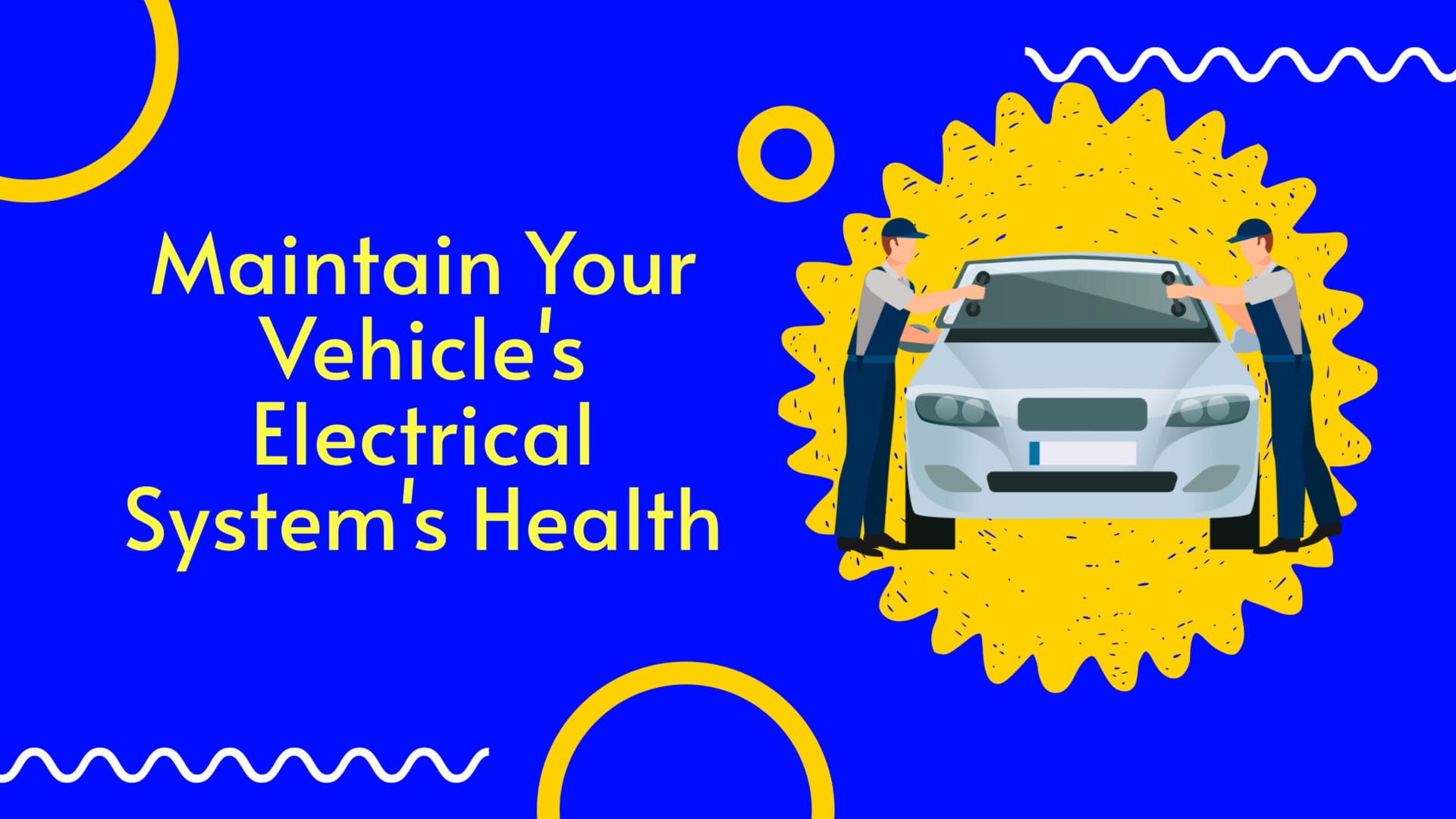
Maintaining your alternator, along with the associated electrical components, ensures the optimal performance of your vehicle. Regular inspections of the alternator, including checking the belt tension, wiring connections, and voltage output, can help identify any potential issues before they escalate.
Additionally, addressing any misfires, rough idle, or power supply problems promptly can prevent the sputtering that can result from a bad alternator. By prioritizing regular alternator maintenance, you can maintain your vehicle’s electrical system’s health, minimize the risk of sputtering, and ensure a smooth ride and an unexpected roadside pitstop.
Remember, a healthy alternator not only ensures the reliability of your car’s electrical components but also contributes to an overall enhanced driving experience. So, pop the hood, give your alternator the attention it deserves, and let the hum of a well-functioning engine be your reward.
What Other Surprising Issues Can Arise From Alternator Problems?
As we continue our automotive expedition, it’s essential to illuminate the lesser-known repercussions that stem from alternator problems. Beyond the realm of sputtering engines and flickering lights, a failing alternator can cast a wide net of disruptions throughout your beloved vehicle.
Unstable Electrical Control Modules:
The intricate web of electrical control modules, governing crucial aspects like transmission, navigation, SRS/airbag, traction/ABS, sensors, ECM, lighting, video, and audio, can fall prey to the erratic voltage levels unleashed by a malfunctioning alternator. Brace yourself for intermittent malfunctions in these systems, creating a perplexing maze of issues that can leave any car enthusiast scratching their head.
Strain on the Battery:
An ailing alternator not only struggles to provide a consistent power supply but also places an undue burden on the battery. Constant depletion becomes the norm, leading to difficulties in starting the car, and a frequent need for jump starts leads to a dead battery. As a result, you need to face a never-ending cycle of replacing a bad battery with a new one. It’s a domino effect that begins with the alternator but reverberates through the entire electrical ecosystem.
Impact on Fuel Injection and Engine Performance:
Picture the fuel injection system, a critical component for optimal engine performance. In the clutches of a faltering alternator, this system experiences setbacks, resulting in poor engine performance (especially in belt-driven systems) and a noticeable dip in fuel efficiency. It’s a reminder that the consequences of alternator issues extend beyond the electrical realm, seeping into the very heart of your vehicle’s mechanical functionality.
Unreliable Electronic Components:
The struggle of the alternator to meet electrical demands doesn’t spare electronic comforts. Power windows, air conditioning, and other creature comforts may become unreliable, leaving you in the lurch during the most inconvenient times. The seemingly unrelated mayhem caused by an alternator in distress serves as a stark reminder that its impact is felt far and wide.
Diode Malfunctions:
Modern alternators come equipped with diodes responsible for converting AC to DC. A malfunctioning diode doesn’t just disrupt this conversion; it can unleash electrical feedback, potentially damaging other vital components in your vehicle.
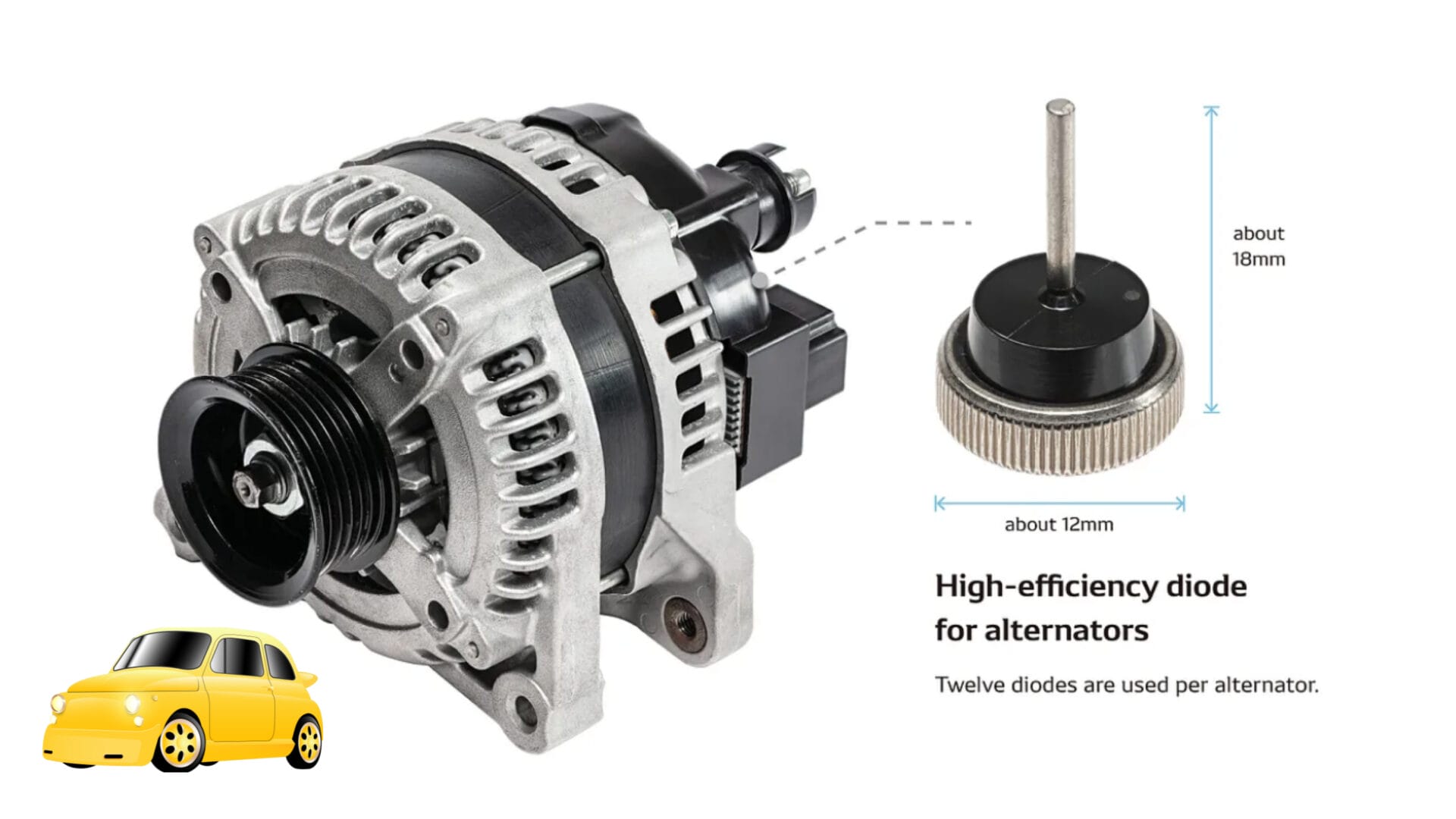
Brace yourself for the possibility of harm reaching the ECU, sensors, and even the trusty car battery, all stemming from a seemingly innocuous alternator issue.
In essence, the ripple effect of a bad alternator extends far beyond initial expectations, affecting everything from intricate control modules to the very essence of your driving experience. So, as we dive deeper into the nuances of automotive intricacies, be prepared to uncover the surprising and interconnected challenges lurking beneath the hood.
FAQ
Can A Bad Alternator Cause Misfiring?
Yes, a malfunctioning alternator can indeed contribute to engine misfiring. The alternator is responsible for providing a steady supply of electrical power to essential engine components, such as spark plugs and fuel injectors. When the alternator fails, it disrupts the consistent flow of electricity to these components, leading to irregularities in the combustion process.
Misfiring occurs when the spark plugs fail to ignite the fuel-air mixture properly in fuel pump, impacting overall engine performance. The electrical instability originating from the bad alternator directly influences the precision required for combustion, resulting in misfires.
Can A Bad Alternator Affect RPM?
Yes, a bad alternator affect RPM. A failing alternator struggles to produce the necessary electrical power for the car’s components. In an attempt to compensate for this deficiency, the engine’s RPMs (revolutions per minute) are often increased to sustain the failing alternator’s output.
The higher engine RPMs ensure that the alternator generates enough electricity to power electrical systems. This adjustment in RPM is a coping mechanism to address the inefficiency of the failing alternator. If you observe your car idling at higher RPMs than usual, it signals a potential issue with the alternator that should be promptly examined by a professional for proper diagnosis and resolution.
Can A Bad Alternator Affect Spark?
Yes, a bad alternator can impact spark function. The alternator powers the spark plugs, which are responsible for igniting the gasoline to start your engine.
When the alternator is faulty, it fails to generate sufficient electrical power, causing a deficit in the energy needed for spark plug operation. Without the proper spark, the engine struggles to initiate the combustion process during startup, leading to difficulties in starting the vehicle. Therefore, a bad alternator directly affects the spark plugs’ ability to create the necessary spark, impacting the overall performance of the engine. Addressing alternator issues promptly ensures a reliable ignition system and smoother engine operation.
What Noise Does A Bad Alternator Make?
A bad alternator can make growling or whining noises under the hood. This occurs when the belt turning the alternator’s pulley becomes misaligned or rubs against the pulley’s side. These distinct sounds signal potential alternator problems.
Does A Bad Alternator Hum?
Yes, a bad alternator can hum. Within the alternator, there are special bearings designed to facilitate smooth and quiet rotation of its rapidly spinning parts. Over time, these bearings can wear out due to the constant movement and friction. As they degrade, they lose their effectiveness in reducing friction and maintaining smooth rotation. The worn-out bearings create increased resistance and irregularities in the spinning motion, leading to the development of a distinct whirring or buzzing noise. This audible signal serves as an indication that the alternator may be experiencing mechanical issues, specifically related to the condition of its bearings.
Can Bad Alternator Cause Rough Idle?
Yes, a bad alternator can indeed cause a rough idle in a vehicle. When the alternator is unable to provide sufficient power (a minimum of 12 volts), electronic parts such as spark plugs, fuel injectors, etc. that get power from the alternator will stop working. This will cause an engine misfire and further rough idle.
Closing Words
In unraveling the mystery of can a bad alternator cause sputtering in your vehicle, we’ve journeyed through the intricate web of automotive electrical systems. From understanding the alternator’s role to exploring the unexpected issues that can arise, our expedition has shed light on the far-reaching consequences of alternator malfunctions.
So, in conclusion, a bad alternator can indeed cause sputtering in your vehicle and have a negative impact on the performance of your vehicle, affecting the ignition system, fuel filter system, and sensor functions.
Unravel the complexities of automotive care with Autofixgenius, your trusty friend, offering guidance and solutions to keep your beloved ride in optimal condition. Your road ahead promises more knowledge, more solutions, and more enjoyable drives. Until then, happy and safe travels!

